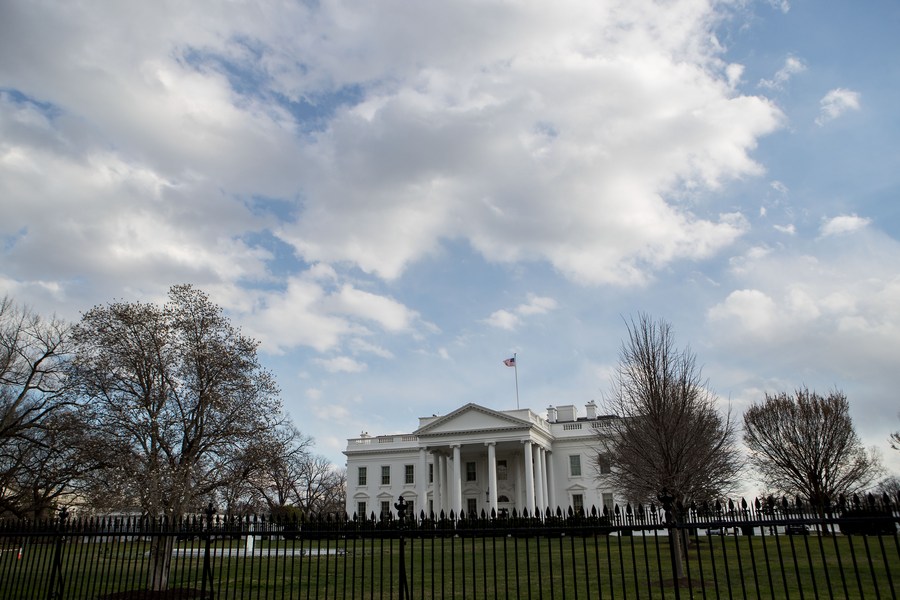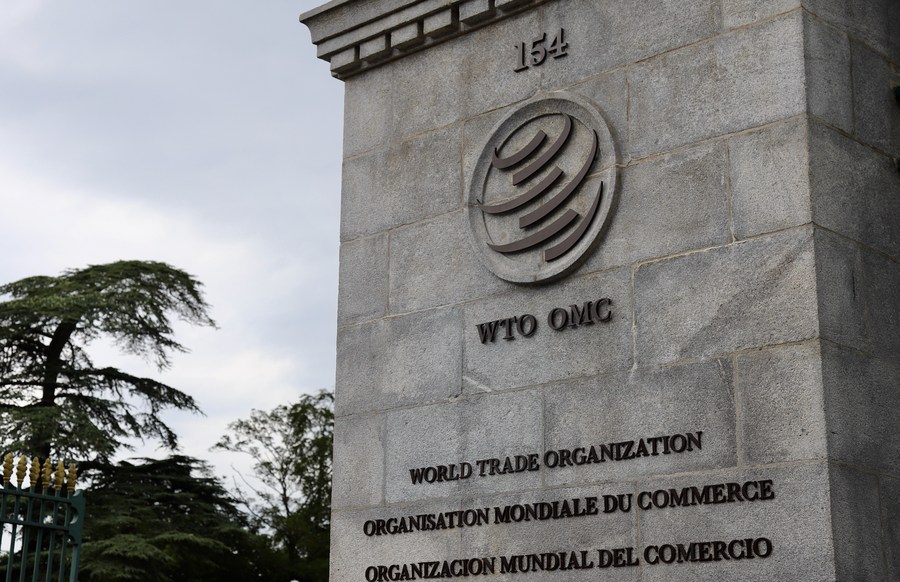GENEVA, Jan. 29 (Xinhua) — Members of the World Trade Organization (WTO) have denounced the United States for its abusive series of appeals against the global trade watchdog’s panel rulings over its import tariffs and flawed labeling of goods origins, urging the country to fulfill its obligations as a WTO member and stop its unilateral and protectionist moves.
At the latest Dispute Settlement Body (DSB) meeting held here on Friday, five WTO members — China, Norway, Switzerland, Turkey, and Hong Kong — required the plenary meeting to pass five panel rulings regarding duties imposed by the United States on steel and aluminium imports and U.S. origin marking requirement applicable to goods produced in Hong Kong.
Before the meeting, the United States had appealed four panel rulings regarding duties imposed by Washington on imports of steel and aluminum products from China, Norway, Switzerland and Turkey.
The United States had also filed a seperate appeal against another ruling issued last month, in which Washington deliberately mislabeled products made in Hong Kong as “Chinese-made.” The shift in the origin of those goods to be imported to the United States was ruled “not justified” by a DSB panel.
The world’s largest economy also declared it would postpone implementing a panel report regarding a dispute initiated by the European Union (EU) targeting U.S. anti-dumping and countervailing duties on imports of ripe olives from Spain.
ABUSIVE APPEALS
Washington has a long history of trade bullying. Though it used its right of appeal as a WTO member, its action amount “to effectively blocking” WTO rulings, according to a statement by the EU on Friday.
The EU noted that the panel reports have been appealed, but these appeals cannot be currently heard by the Appellate Body, given that it cannot function.
Previously, it normally takes three months for the WTO Appellate Body to rule on any appeals it receives. However, the appeal court has halted operation because the United States has blocked the appointment of new judges and required an overall reform.
Therefore, appeals cannot be processed, and related rulings cannot move forward.
Canada noted that since Dec. 11, 2019, the Appellate Body has effectively been non-functioning, according to a statement delivered at Friday’s meeting.
The United States tends to appeal every unfavorable panel report and refuse to comply with the results of any proceedings of the DSB, China’s Ambassador to the WTO Li Chenggang told a DSB meeting.
“These troubling behaviors of the U.S. have clearly depicted an image of the U.S. as a unilateral bully, a rule breaker and a supply chain disruptor,” Li said.
So far, 127 WTO members have attempted on 61 occasions to start the selection process for filling vacancies on the Appellate Body. Still, the United States blocked the proposed decision.
Canada stressed in its statement that all parties to the dispute must fulfill their good faith commitment under the Dispute Settlement Understanding by making every effort to find an acceptable solution. In the long run, no member would benefit from a situation where disputes remain unresolved.
It said that a member acting in good faith should find no comfort in an unfair — and short-term — advantage that has arisen because of the absence of a functioning Appellate Body.
The EU also encourages all parties to find a solution that preserves the rights of both the complainant and respondent.
PROTECTIONIST MOVES RULED UNJUSTIFIED

Photo taken on March 8, 2018 shows the exteriority of White House in Washington D.C., the United States. (Xinhua/Ting Shen)
In March 2018, the United States began imposing Section 232 duties on steel and aluminum products to protect its domestic industry under the guise of national security.
Given that Washington has exempted 70 percent of its steel imports from the additional duties, the restricted imports only accounted for 5 percent of U.S. steel consumption, in which defense use took only roughly 0.15 percent, Li said at the meeting.
“In other words, Section 232 measures are overwhelmingly protectionist, as its contribution to national security is negligible at best,” Li noted.
From the outset, the United States deployed these additional duties as an instrument of economic coercion, using them to force other members to enter into quota arrangements or make concessions to the United States in trade negotiations, said the Chinese ambassador.
These measures have been widely opposed, sued by several WTO members and found WTO-inconsistent by all panels. The findings of the panel in this dispute demonstrated once again that a security exception is not a “safe harbor” for unilateralism or protectionism, Li added.
Alparslan Acarsoy, Turkish ambassador to the WTO, said at the 15th Trade Policy Review of the United States held on Dec. 2022 that the United States imposed additional tariffs on imported aluminum and steel products, which clearly violates WTO rules.
He urged the United States to cancel the additional tax measures to avoid further damage to the multilateral trading system.
Türkiye believes that the United States has systematically and structurally damaged members’ confidence in the multilateral trading system, he added.
“Before the panel, the U.S. relied upon Section 232 reports that formed the basis of the measures to argue that the worldwide excess capacity of steel could damage its domestic steel sector such that it would not be able to increase or maintain production of steel required to address national emergencies,” said Jayant Raghu Ram, a writer with Indian law firm Lakshmikumaran & Sridharan Attorneys, in a recent article. “This excess capacity, according to the U.S., constituted an ’emergency in international relations.'”
“However, the panel wasted no words in dismantling the U.S. tenuous defense and held that the situation of excess global steel capacity” did not “constitute an ’emergency in international relations,'” Ram said.
On Aug. 11, 2020, the United States required Hong Kong products exported to the United States to be labeled “Made in China,” which the WTO ruled in late December 2022 violated the country’s obligations under the trade organization’s rules.
The Hong Kong Special Administrative Region (HKSAR) government welcomed the ruling.
The ruling has once again confirmed that the United States has disregarded international trade rules, attempted to impose discriminatory and unfair requirements unilaterally, unreasonably suppressed Hong Kong products and enterprises, and politicized economic and trade issues, said Algernon Yau, secretary for commerce and economic development of the HKSAR government, in a statement.
“When President Biden of the less conservative Democratic Party was voted into power in 2020, it was expected that the U.S. government would tone down its nihilistic rhetoric towards the multilateral trading system and withdraw measures that seemingly violate WTO law, most notably the Section 232 measures,” Ram added.
“However, irrespective of such change in guard, the United States continues to maintain status quo in respect of such measures,” he said.
“Though the U.S. detraction from the rule of law in the WTO’s rules-based system is not unknown or surprising, WTO members may find relief in the fact that the panel has outrightly held these infamous measures as inconsistent with WTO law,” Ram noted.













